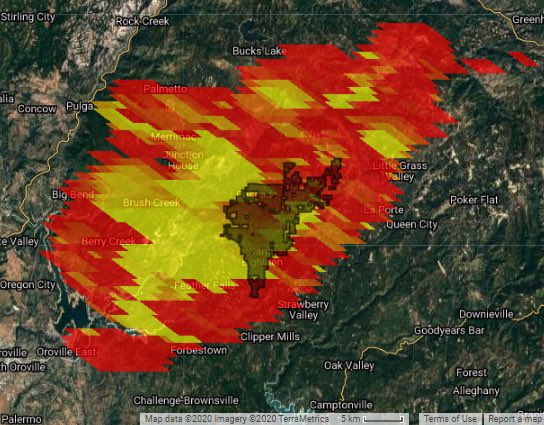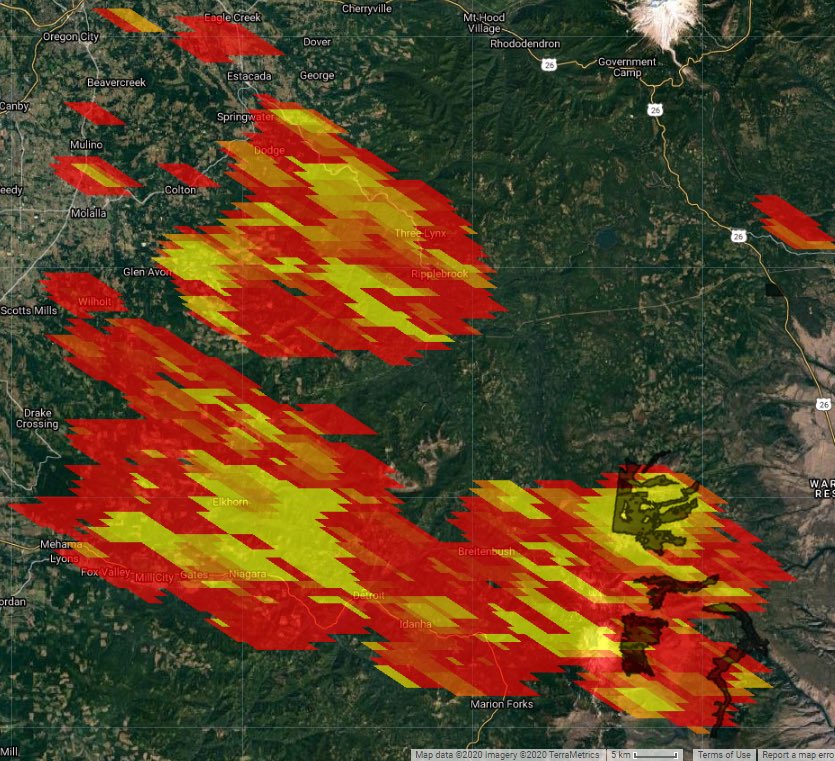Tweets
- Tweets, current page.
- Tweets & replies
- Media
You blocked @carbonplanorg
Are you sure you want to view these Tweets? Viewing Tweets won't unblock @carbonplanorg
-
Pinned Tweet
We are excited to release a major new study led by the remarkable forest ecologist
@gmbadge documenting widespread over-crediting in California’s forest carbon offsets program. (1/20)https://carbonplan.org/research/forest-offsets-explainer …Show this threadThanks. Twitter will use this to make your timeline better. UndoUndo -
As the
#BootlegFire is live and growing fast, we’ll continue to update this thread as more information becomes available. Meanwhile, we’ll be thinking of the firefighters and communities affected by evacuations and smoke. (10/10)pic.twitter.com/6fKVHB49Fu Show this threadThanks. Twitter will use this to make your timeline better. UndoUndo
Show this threadThanks. Twitter will use this to make your timeline better. UndoUndo -
Those looking to support local communities affected by the fire can donate to the nearby Klamath Food Bank or Red Cross Oregon. (9/10) https://www.klamathfoodbank.org/ https://www.redcross.org/local/oregon.html …
Show this threadThanks. Twitter will use this to make your timeline better. UndoUndo -
Major fires aren’t just a problem for local and downwind communities. As
@Sammy_Roth wrote for the@latimes, the#BootlegFire also caused major disruptions on the regional electricity grid. (8/10)https://www.latimes.com/business/story/2021-07-12/california-flex-alert-power-grid-heat-wildfire …Show this threadThanks. Twitter will use this to make your timeline better. UndoUndo -
Unfortunately, the risk of forest fires will only get worse with climate change. In recent work with
@scientistoriana we projected escalating future risks to western forests. Here’s the regional projection under different emissions scenarios. (7/10) https://carbonplan.org/research/forest-risks-explainer …pic.twitter.com/Jz10g6UxlA Show this threadThanks. Twitter will use this to make your timeline better. UndoUndo
Show this threadThanks. Twitter will use this to make your timeline better. UndoUndo -
But as
@emilypont and@shannonosaka wrote for@grist, even last year’s large fire raised questions about the adequacy of carbon offset buffer pools. (6/10)https://grist.org/climate/this-oregon-forest-was-supposed-to-store-carbon-for-100-years-now-its-on-fire/ …Show this threadThanks. Twitter will use this to make your timeline better. UndoUndo -
Together with
@claudherb, we wrote about the likely impacts from that fire and its implications for California’s forest carbon “buffer pool” — an insurance-like mechanism that sets aside a share of each project’s credits in case of disaster. (5/10)https://carbonplan.org/research/offset-project-fire …Show this threadThanks. Twitter will use this to make your timeline better. UndoUndo -
This isn’t the first time fire has hit a large forest offset project. Last year
@claudherb spotted another Oregon fire burning a forest credited in California’s offsets program. Here’s her eagle-eyed thread from Sept. 2020. (4/10)https://twitter.com/claudherb/status/1305957626824466433 …
 Show this threadThanks. Twitter will use this to make your timeline better. UndoUndo
Show this threadThanks. Twitter will use this to make your timeline better. UndoUndo -
The project impacted by the
#BootlegFire, ACR273, is a 400,000 acre forest project that was recently harvested for timber and has earned more than 950,000 offset credits from California’s climate regulator as it regrows. (3/10) https://acr2.apx.com/mymodule/reg/prjView.asp?id1=273 …Show this threadThanks. Twitter will use this to make your timeline better. UndoUndo -
The
#BootlegFire is currently at 201,923 acres and growing, approximately 11 miles northeast of the town of Sprague River, Oregon. (2/10) https://inciweb.nwcg.gov/incident/7609/Show this threadThanks. Twitter will use this to make your timeline better. UndoUndo -
As the
#BootlegFire burns out of control in Oregon — with critical implications for public safety, air quality, and forest health — we can report that another large forest offset project appears to be on fire. (1/10)pic.twitter.com/vnNjt9UWxjShow this threadThanks. Twitter will use this to make your timeline better. UndoUndo -
carbonplan Retweeted
Saving the environment takes math. https://www.npr.org/2021/05/07/994774148/emission-impossible …pic.twitter.com/WVIT14zm6u
Thanks. Twitter will use this to make your timeline better. UndoUndo -
Thanks to
@ESlessarev for leading this analysis; to coauthors@j_zelikova@HammanHydro@dcullenward@thefreemanlab; to@Jeffinerca and Dan Liptzin for helpful discussions; and to@PWVentures for funding. (9/9)Show this threadThanks. Twitter will use this to make your timeline better. UndoUndo -
But as federal lawmakers, state regulators, and voluntary carbon markets all explore crediting soil carbon, we need to be extremely careful to get the measurement right — otherwise we risk making big mistakes. (8/9)
Show this threadThanks. Twitter will use this to make your timeline better. UndoUndo -
It’s important to remember that even if the carbon benefits from agricultural practices are uncertain or overestimated, they can still be broadly beneficial for maintaining soil health and ecosystem services. (7/9)
Show this threadThanks. Twitter will use this to make your timeline better. UndoUndo -
We used a simple calculation to illustrate the potential consequences of ignoring these issues. At the scale of the entire US, measurement artifacts could over-credit 367 million tCO₂, equivalent to 58% of the total annual emissions from the US agricultural sector in 2019. (6/9)pic.twitter.com/ELQFuh9xcO
 Show this threadThanks. Twitter will use this to make your timeline better. UndoUndo
Show this threadThanks. Twitter will use this to make your timeline better. UndoUndo -
We also looked at how changes in soil density in the top layer, which occur after conversion to no-till, can appear as changes to soil carbon unless careful estimation methods are used. Luckily, this potential measurement artifact can be corrected! (5/9)pic.twitter.com/2oyeC54LaI
 Show this threadThanks. Twitter will use this to make your timeline better. UndoUndo
Show this threadThanks. Twitter will use this to make your timeline better. UndoUndo -
Carbon redistribution means that conversion to no-till can increase carbon in the top layer of soil while decreasing it at greater depths. Carbon accounting must look at the complete depth profile, otherwise we might get the wrong answer. (4/9)pic.twitter.com/DD80NIZOrW
Show this threadThanks. Twitter will use this to make your timeline better. UndoUndo -
Our article discusses two issues that can be major pitfalls when measuring soil carbon: carbon redistribution and density changes. We use conversion from tillage to no-till as our example. (3/9)
Show this threadThanks. Twitter will use this to make your timeline better. UndoUndo -
Soil carbon sequestration has been getting a lot of attention as a climate mitigation strategy, but actually measuring soil carbon is super complicated. For any of these efforts to succeed, we need rigorous and robust measurement. (2/9)
Show this threadThanks. Twitter will use this to make your timeline better. UndoUndo -
New article announcement! Our collaborator
@ESlessarev led an analysis with us on the role of depth in soil sampling, and why it matters for soil carbon crediting. (1/9)https://carbonplan.org/research/soil-depth-sampling …Show this threadThanks. Twitter will use this to make your timeline better. UndoUndo
Loading seems to be taking a while.
Twitter may be over capacity or experiencing a momentary hiccup. Try again or visit Twitter Status for more information.




